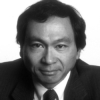Francis Fukuyama

Francis Fukuyama
Yoshihiro Francis Fukuyamais an American political scientist, political economist, and author. Fukuyama is known for his book The End of History and the Last Man, which argued that the worldwide spread of liberal democracies and free market capitalism of the West and its lifestyle may signal the end point of humanity's sociocultural evolution and become the final form of human government. However, his subsequent book Trust: Social Virtues and Creation of Prosperitymodified his earlier position to acknowledge that culture cannot...
NationalityAmerican
ProfessionEconomist
Date of Birth27 October 1952
CountryUnited States of America